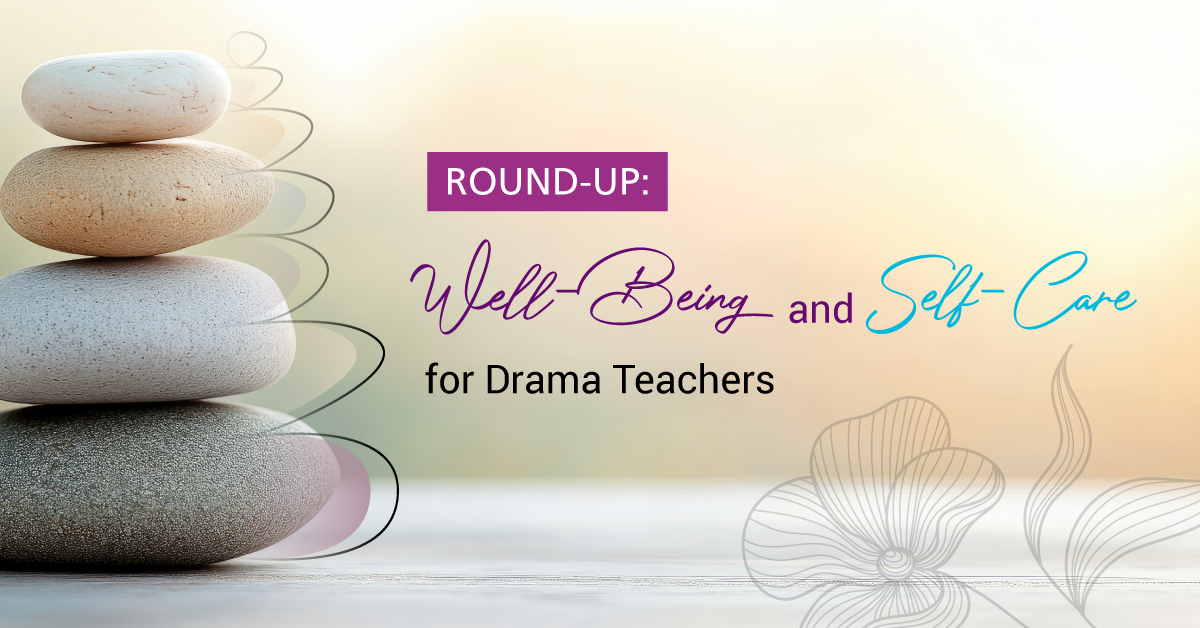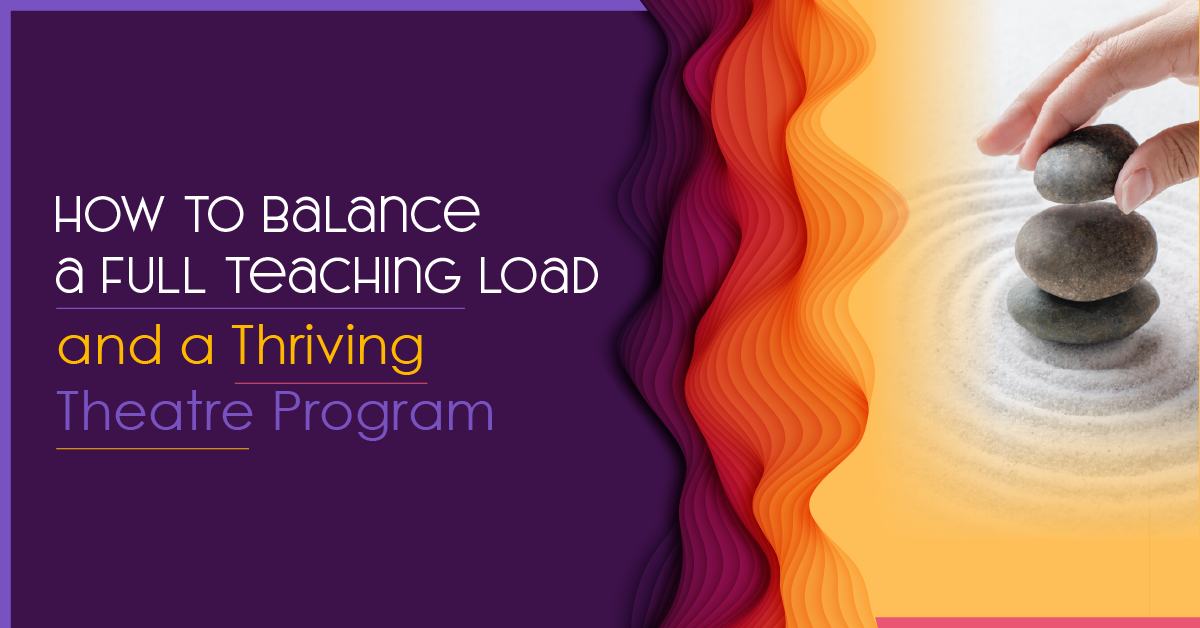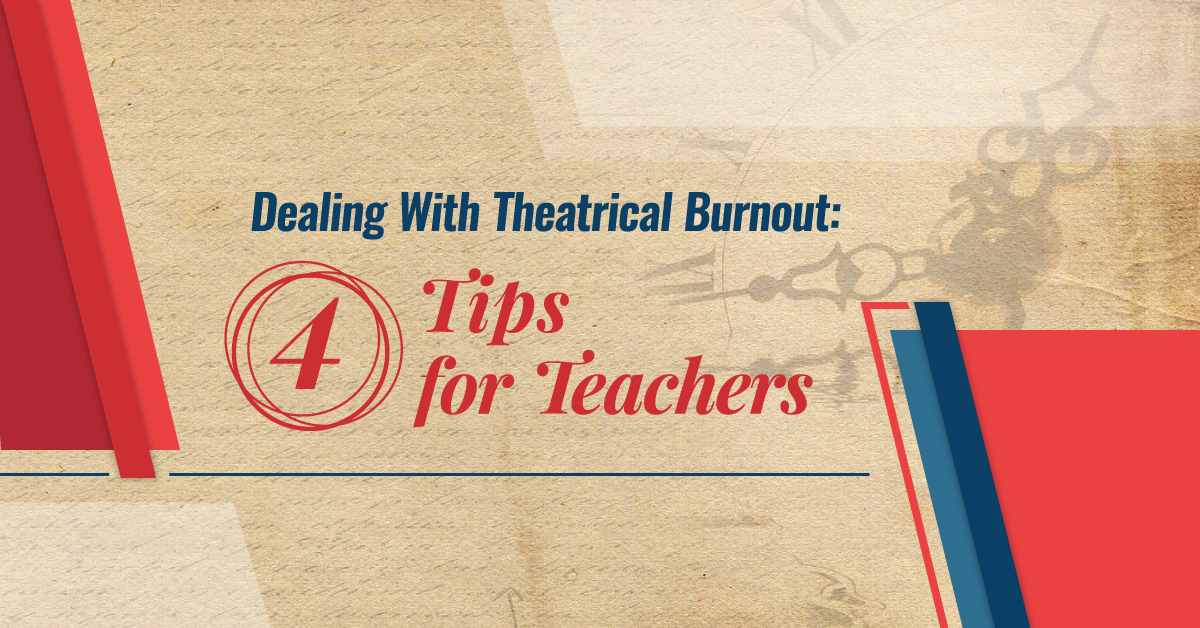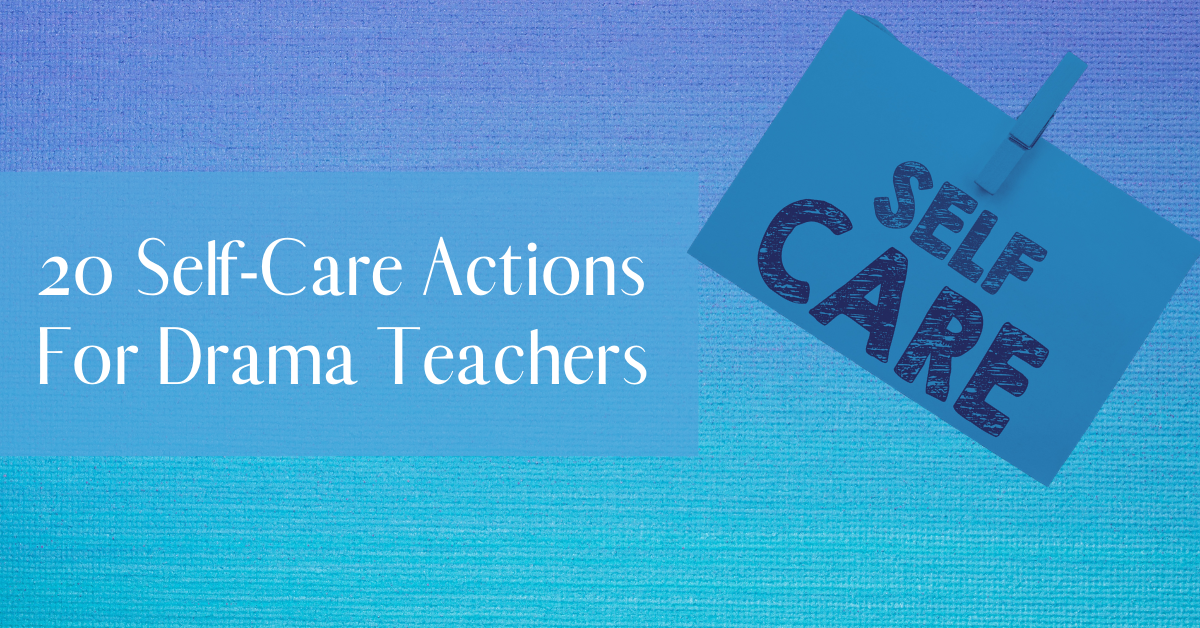Round-Up: Well-Being and Self-Care for Drama Teachers
Drama teachers, we see you. You pour so much energy into your students, productions, lessons, and trying to maintain some semblance of work-life balance, and we know it can take a toll on you. Maintaining your well-being and self-care isn’t a luxury; it’s a necessity for long-term sustainability and staving off burnout.
Do a check-in with yourself. How are you doing? How are you feeling? Do you still have passion for teaching theatre? This can help you determine what the next step in your self-care needs to be.
These 20 self-care tasks for teachers will help you to avoid burning out before you even begin. They’re simple, actionable, and effective.
Being a drama teacher isn’t a full-time job… it’s TWO full-time jobs. From lesson planning to marking to directing your school production, there are countless responsibilities to shoulder. However, it is possible to balance both of these full-time jobs without burning yourself out. This article contains tips and tools that drama teachers can use to teach their classes while maintaining and running their programs.
In this video, veteran theatre educators and playwrights Lindsay Price and Laramie Dean talk about what Laramie likes to do after completing a big show or project to help maintain work-life balance. There’s also a worksheet to help organize your thoughts on maintaining work-life balance on a weekly basis.
It’s tempting to use summer and winter breaks to either get caught up or work ahead, but please take that break to rest, rejuvenate, and refresh. No matter what season or hemisphere you’re in, we’ve got helpful suggestions for you to get yourself feeling better. Remember: self-care is NOT selfish. And while we joke about self-care not just being about candles and bubble baths, if that is what helps to refill your cup, then get in that tub and relax!
Experiencing rehearsal burn-out or drama class burn-out, or even both, is not fun. But we’ve got you covered. Our top tips for dealing with burnout? Set boundaries, and delegate as much as you can to other staff members, higher-level students, and volunteer parents. For example, you might have students use peer assessment rubrics or self-assessments for some assignments to help reduce the amount of grading you have to do. Setting boundaries protects your time, and delegating tasks as much as possible will help set you up to successfully complete the tasks that only you can do.
Mindfulness activities are great for students but also so helpful for teachers. Here are 10 mindful minutes activities that you can use both in the drama classroom and in your everyday life to create calm and ease anxiety.
We always preach making healthy choices to our students, but when was the last time you subsisted on something other than coffee and takeout, especially during show week? Here are some health and fitness tips for drama students that again are also beneficial for teachers. As the saying goes: an ounce of prevention is worth a pound of cure.
Reach out to others in your community: other drama teachers, performing arts communities, online communities, whoever is available. However you might be feeling at the moment, chances are there is someone out there who has felt how you’re feeling or been where you are, and they’ll be able to commiserate with you, offer solutions or help, or at least remind you that you aren’t alone.
Read over the following affirmations and words of encouragement. Copy them into a notebook or print them out and post them somewhere you’ll see them frequently.
- Back to School Affirmations for Teachers
- We See You. We Hear You. We Are With You.
- Motivational Words for a Struggling Drama Teacher
- What Is the Best Thing About Being a Drama Teacher?
- Why Drama Class Matters More Than Ever, Even in Challenging Times
- 10 Reminders That What You’re Doing as a Drama Teacher Matters
Keep your creative cup full. Attend a show you didn’t direct, read a play just for fun, or take up a hobby that has nothing to do with school or drama class, just for you: painting, yoga, singing in a choir, dance class, sculpting, whatever brings you joy.



